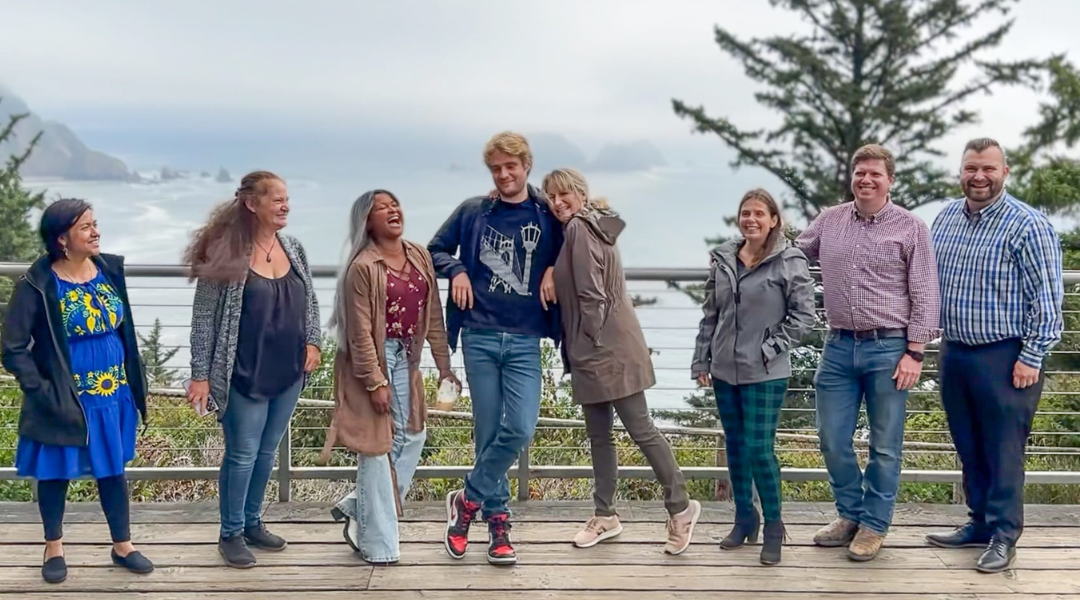 Transitioning from in-clinic visits to telemedicine hasn’t been a problem for Dr. Barbara Boylan, 62, who had prior volunteer experience supporting health care providers via video conference.
Transitioning from in-clinic visits to telemedicine hasn’t been a problem for Dr. Barbara Boylan, 62, who had prior volunteer experience supporting health care providers via video conference.
Since mid-March, she’s been doing initial consults with new patients from her home office in San Rafael, conducting follow-up calls, and even helping to identify a rare endocrine condition in a pregnant woman in her 30s who was experiencing hypertension.
Dr. Alaric Akashi, 61, has been on the phone with patients in Marin County, helping people who are recently unemployed transition to new health insurance, establishing primary care providers for those who haven’t had one in years, and assisting those dealing with drug and alcohol problems or struggling with homelessness.
Both Dr. Boylan and Dr. Akashi retired once but came back to work part-time through the Encore Physicians program — a pilot program in the San Francisco Bay Area that matches retired physicians to clinical roles in community health centers. Over the course of a year, Encore Physicians receive a stipend for providing direct patient care and mentoring less experienced clinicians.
“So many doctors want to continue contributing in their retirement, and community health clinics are hungry for expertise,” says Gerald Bourne, who directs the Encore Physicians program. “I’m proud that Encore Physicians are finding safe and effective ways to ensure care is delivered to vulnerable populations during the pandemic.”
Having a cardiologist on staff has been a total game-changer, notes Sue Labbe, the medical director of Alliance Medical Center in northern Sonoma County and Dr. Boylan’s supervisor.
“We serve a culturally diverse yet economically challenged and vulnerable patient population that is primarily low-income, and either uninsured or under-insured,” Labbe says. “Dr. Boylan’s expertise has eliminated all of the previous challenges created by having to refer patients out for specialty cardiology care.”
Dr. Boylan sees the limits of telemedicine but can overcome them. She can’t listen to the patient’s heart and lungs, but she can “still access their medical records from home, read EKGs remotely, and the clinic is open if I need to send someone in for follow-up tests or blood work.”
“I was worried working virtually would feel limiting,” she says, “but most of the calls are really rewarding. And I really want to stay involved as a cardiologist.”
 At Marin Community Health Clinics, Dr. Akashi says about 80 percent of patient appointments are now handled virtually. But he still goes to the Larkspur clinic two days a week for the 20 percent who need in-person care. “The risk is fairly low,” he says, “because we’re screening potential Covid-19 patients by phone, and if they’re experiencing any of the symptoms, we have other clinics that triage the patient.”
At Marin Community Health Clinics, Dr. Akashi says about 80 percent of patient appointments are now handled virtually. But he still goes to the Larkspur clinic two days a week for the 20 percent who need in-person care. “The risk is fairly low,” he says, “because we’re screening potential Covid-19 patients by phone, and if they’re experiencing any of the symptoms, we have other clinics that triage the patient.”
Even before he retired, Dr. Akashi says he was looking into ways he could work part-time to keep his skills fresh, stay busy, and contribute to a community again.
“I’m Japanese American,” he says. “Both of my parents were in internment camps during WWII. I know what it feels like to be first generation and trying to settle into American culture. Many of our patients at the clinic are first-generation Hispanic families. I have a sensitivity to where they’re coming from. I can empathize, which is nice. It’s been a good experience.”
Medical Director Dr. Xavier Perez agrees. “Dr. Akashi has impressed all of us with his friendliness, clinical acumen and patient focus. He’s helped us maintain patient access and quality care during the Covid-19 pandemic.”
For more information about the Encore Physicians program, contact Dr. Mike Rizzo at [email protected].





 Transitioning from in-clinic visits to telemedicine hasn’t been a problem for Dr. Barbara Boylan, 62, who had prior volunteer experience supporting health care providers via video conference.
Transitioning from in-clinic visits to telemedicine hasn’t been a problem for Dr. Barbara Boylan, 62, who had prior volunteer experience supporting health care providers via video conference. At Marin Community Health Clinics, Dr. Akashi says about 80 percent of patient appointments are now handled virtually. But he still goes to the Larkspur clinic two days a week for the 20 percent who need in-person care. “The risk is fairly low,” he says, “because we’re screening potential Covid-19 patients by phone, and if they’re experiencing any of the symptoms, we have other clinics that triage the patient.”
At Marin Community Health Clinics, Dr. Akashi says about 80 percent of patient appointments are now handled virtually. But he still goes to the Larkspur clinic two days a week for the 20 percent who need in-person care. “The risk is fairly low,” he says, “because we’re screening potential Covid-19 patients by phone, and if they’re experiencing any of the symptoms, we have other clinics that triage the patient.”